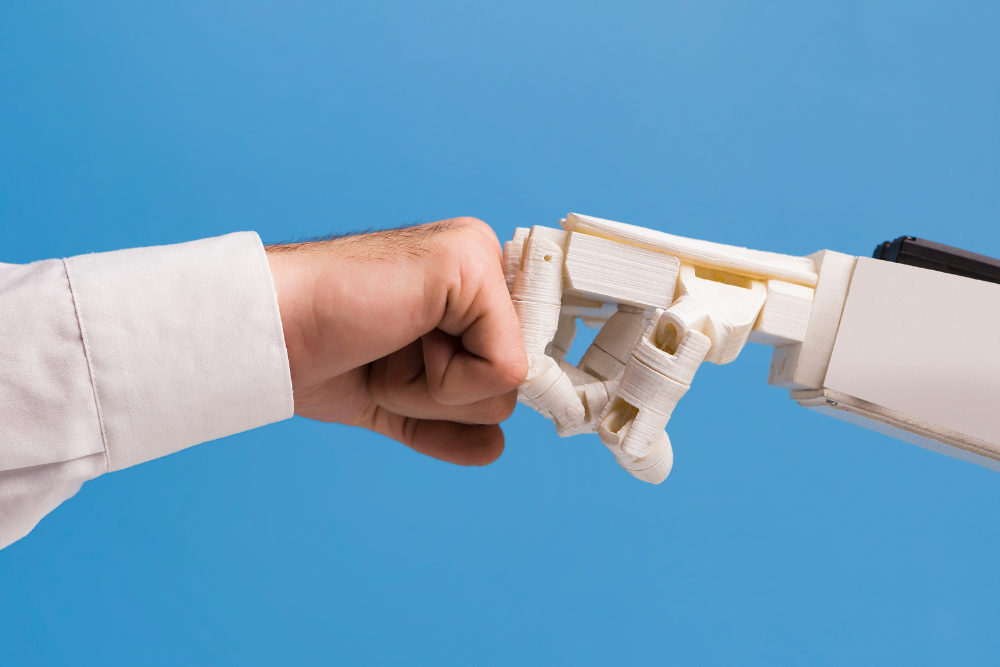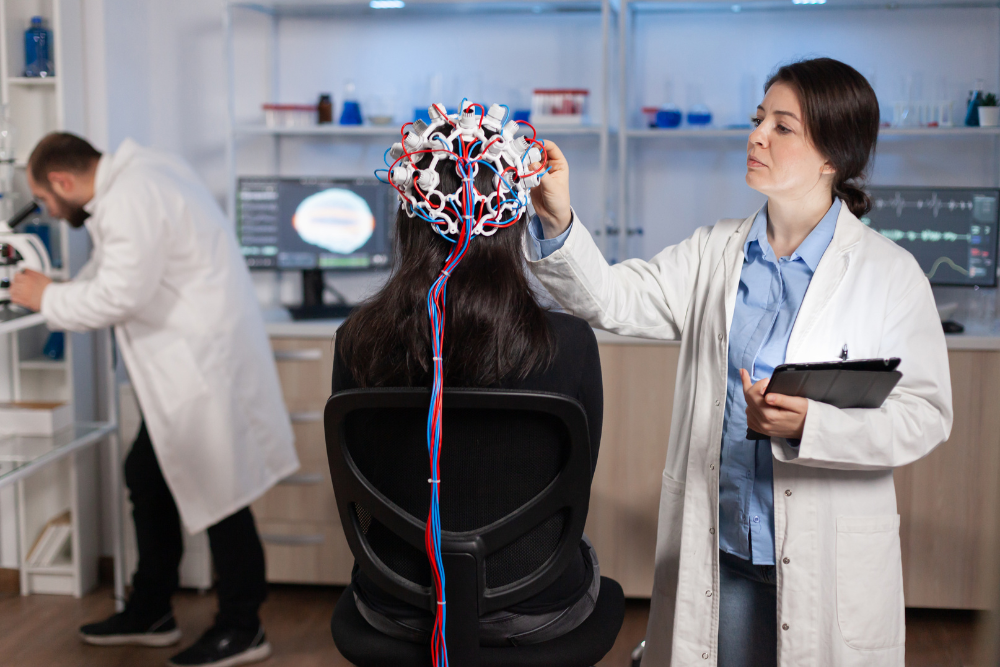AI vs. MD: The Battle of the Medical Titans - Who Diagnoses Better?

The field of medicine is constantly evolving, and one of the most exciting developments in recent years is the rise of artificial intelligence (AI). AI technology is being used to develop new diagnostic tools and treatments, and it has the potential to revolutionize the way we practice medicine.
But with the rise of AI, a question arises: Who diagnoses better - AI or MD?
AI in Medicine:
AI is being used in a variety of ways in medicine, including:- Image recognition: AI can be used to analyze medical images, such as X-rays, CT scans, and MRIs, to detect abnormalities.
- Data analysis: AI can be used to analyze large amounts of medical data to identify patterns and trends that can help doctors diagnose diseases.
- Drug discovery: AI can be used to design and develop new drugs and treatments.
- Robot-assisted surgery: AI is being used to develop robots that can assist surgeons in performing complex procedures.
Benefits of AI in Diagnosis:
AI has several potential benefits in diagnosis, including:- Improved accuracy: AI can analyze large amounts of data and identify patterns that humans may miss, which can lead to more accurate diagnoses.
- Reduced costs: AI can help to reduce costs by automating tasks and improving efficiency.
- Increased access to care: AI can help to provide care to people in underserved areas.
Challenges of AI in Diagnosis:
Despite its potential benefits, AI also faces some challenges in diagnosis, including:- Lack of transparency: It can be difficult to understand how AI algorithms make decisions, which can make it difficult to trust them.
- Bias: AI algorithms can be biased, which can lead to inaccurate diagnoses for certain groups of people.
- Data privacy: The use of AI in medicine raises concerns about data privacy.
MDs in Medicine:
MDs are highly trained professionals who have years of experience in diagnosing and treating diseases. They have a deep understanding of the human body and the complex interplay of factors that can contribute to illness.
Benefits of MDs in Diagnosis:
MDs offer several benefits in diagnosis, including:
- Experience: MDs have years of experience and knowledge that AI cannot replicate.
- Critical thinking: MDs can critically evaluate information and make decisions based on their own judgment.
- Empathy: MDs can provide empathy and support to patients, which is essential for the healing process.
Challenges of MDs in Diagnosis:
Despite their experience and knowledge, MDs also face some challenges in diagnosis, including:- Human error: MDs are human and they can make mistakes.
- Time constraints: MDs are often overworked and under pressure, which can lead to rushed diagnoses.
- Bias: MDs can be biased, which can lead to inaccurate diagnoses for certain groups of people.
So, who diagnoses better - AI or MD?
The answer is not a simple one. Both AI and MDs have their own strengths and weaknesses. AI can provide a more objective and data-driven approach to diagnosis, while MDs can offer a more personalized and empathetic approach.The best approach to diagnosis is likely a combination of both AI and MDs. AI can be used to analyze data and identify potential problems, while MDs can use their experience and judgment to interpret the results and make a diagnosis.
Conclusion:
The future of medical diagnosis is likely to be shaped by both AI and MDs. By working together, AI and MDs can create a more accurate and efficient system for diagnosing diseases, which will benefit patients around the world.Additional Resources:
Parvathy Hospital: https://www.parvathyhospital.comThe Lancet: https://www.thelancet.com/: https://www.thelancet.com/
Let's continue to work together to improve medical diagnosis for everyone.





